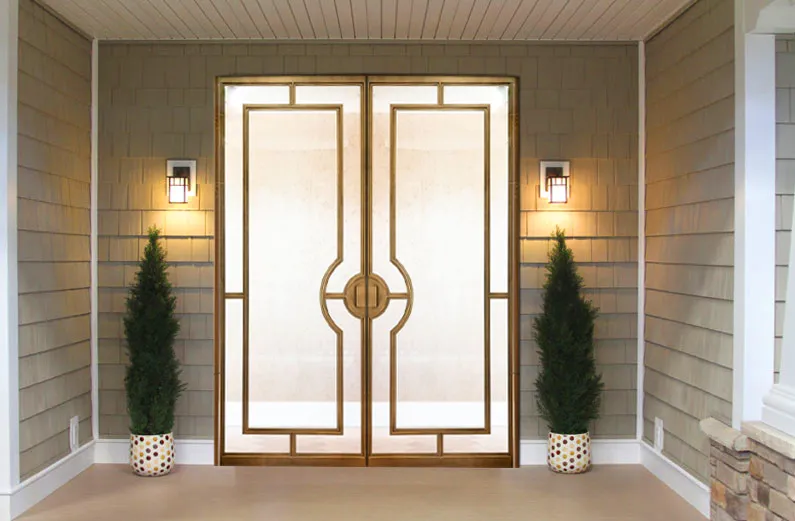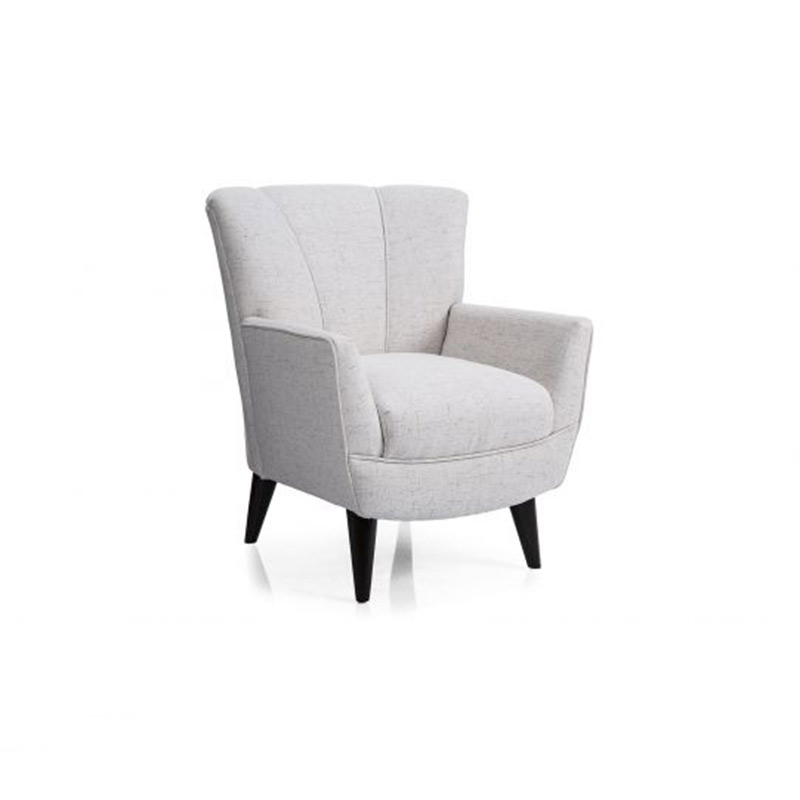Choosing the right glass main doors manufacturer ensures your entryways combine elegance, durability, and security. With the rising popularity of glass doors in residential and commercial spaces, a trusted manufacturer provides design versatility, customization, and advanced technologies to suit every style and functionality requirement. In this article, we explore essential considerations, features, and materials when selecting a manufacturer for glass main doors, emphasizing aesthetics, security, and durability.
1. Why Opt for a Glass Main Doors Manufacturer?
Working with a dedicated manufacturer brings quality assurance, expertise, and innovative designs to your entryways. Glass main doors make a bold, sophisticated statement, and reputable manufacturers offer benefits such as:
- High-Quality Materials: Manufacturers prioritize top-grade glass and hardware for maximum durability and appeal.
- Advanced Security: Many use tempered or laminated glass for added strength, reducing risk and providing peace of mind.
- Customized Solutions: Tailored designs to match architectural styles, from modern to classic, ensuring a perfect fit.
- Weather Resistance: Specialized treatments and materials that withstand various climate conditions without compromising quality.
2. Key Types of Glass Main Doors
Glass doors come in multiple styles, each offering unique advantages. Choosing the right style not only enhances curb appeal but also adds functionality to the space.
A. Frameless Glass Doors
Frameless glass doors create a seamless, minimalist look, perfect for modern architecture.
- Design: Sleek, without visible frames, offering unobstructed views.
- Features: Made from thick, tempered glass to ensure strength.
- Benefits: Adds a contemporary, airy feel with an emphasis on natural light.
B. Frosted Glass Doors
For those looking to maintain privacy without sacrificing light, frosted glass is a popular choice.
- Design: Matte finish, often with a variety of patterns.
- Features: Available in full or partial frosting for adjustable opacity.
- Benefits: Provides privacy while allowing sunlight to diffuse softly through the space.
C. Sliding Glass Doors
Sliding glass doors are practical for entryways with limited space or where an expansive view is desired.
- Design: Panels slide along tracks, saving space.
- Features: Often includes double-paned glass for energy efficiency.
- Benefits: Offers a smooth transition between indoor and outdoor areas, enhancing visual space.
D. Pivot Glass Doors
Pivot doors are unique, swinging on a central pivot point rather than hinges on one side.
- Design: Large glass panels with pivoting mechanisms.
- Features: Ideal for creating grand entrances.
- Benefits: Adds a luxurious, modern appeal and accommodates larger openings.
E. French Glass Doors
Classic French doors suit both traditional and transitional home styles, offering elegance and character.
- Design: Two glass panels with frames, opening from the center.
- Features: Often incorporates divided panes for a vintage look.
- Benefits: Enhances natural lighting and gives a classic, sophisticated touch.
3. Material Choices for Glass Main Doors
Choosing quality materials ensures that the glass door remains beautiful and functional over time. Manufacturers often offer different glass types and frame materials to meet specific needs.
A. Tempered Glass
Tempered glass is up to four times stronger than standard glass, making it ideal for main doors.
- Strength: Resistant to impact, with a shattering pattern that minimizes harm.
- Applications: Used in both frameless and framed glass doors.
- Benefits: Provides durability and safety, perfect for high-traffic areas.
B. Laminated Glass
Laminated glass has a plastic interlayer between two glass panes, providing added security and soundproofing.
- Strength: Remains intact even if shattered, preventing intrusion.
- Applications: Common in sliding and pivot doors.
- Benefits: Ideal for added security and noise reduction.
C. Low-E Glass
Low-emissivity (Low-E) glass has a special coating to improve energy efficiency by reflecting infrared light.
- Energy Efficiency: Reduces heat transfer, keeping interiors cooler.
- Applications: Often used in sliding or French glass doors.
- Benefits: Enhances thermal insulation, reducing energy costs.
D. Aluminum Frames
Aluminum frames are lightweight, durable, and corrosion-resistant, providing structural support for various door types.
- Strength: Strong and resistant to weather, without warping.
- Applications: Suitable for contemporary and industrial designs.
- Benefits: Low maintenance and long-lasting, with sleek aesthetic appeal.
E. Wooden Frames
Wood frames add warmth and a classic appeal, commonly used in French and traditional glass doors.
- Strength: Provides insulation and a rich aesthetic, though requires maintenance.
- Applications: Works well with frosted and clear glass styles.
- Benefits: Adds charm and character, with customizable finishes.
4. Customization Options with Glass Main Doors
When you work with a skilled glass doors manufacturer, you gain access to numerous customization options to match architectural needs and personal preferences.
- Size and Dimensions: Tailor doors to specific entry dimensions, ensuring a perfect fit.
- Glass Texture and Finish: Options include clear, frosted, tinted, or etched glass to suit different levels of privacy and light.
- Hardware and Handle Options: Choose handles, hinges, and locks that complement the overall design, from sleek stainless steel to rustic bronze.
- Color and Frame Finish: Select from a wide range of colors for aluminum or wooden frames, such as matte black or classic walnut.
- Etched or Decorative Patterns: Custom designs like patterns or logos add a unique touch, especially for commercial settings.
5. Selecting the Right Glass Main Doors Manufacturer
To ensure a successful project, it’s essential to work with a manufacturer who delivers both quality and service. Here’s what to consider:
A. Quality and Craftsmanship
A reputable manufacturer emphasizes high-quality materials and precise craftsmanship. Ask about quality control processes and any certifications that reflect industry standards.
B. Range of Design Options
Leading manufacturers provide various styles and customization options. A broad selection ensures that clients can find or create doors suited to their tastes.
C. Expertise in Safety and Security
For main doors, security is paramount. Look for manufacturers who offer tempered or laminated glass and robust locking mechanisms, ensuring the safety of your property.
D. Eco-Friendly Practices
Many manufacturers now use eco-friendly practices, such as recycled materials, energy-efficient processes, and Low-E glass, making them a sustainable choice.
E. Warranty and After-Sales Support
A good warranty reflects the manufacturer’s confidence in their product. Reliable after-sales support and installation guidance can also ensure your doors remain in top condition.
6. Advantages of Choosing a High-Quality Glass Main Door Manufacturer
Partnering with an established glass main door manufacturer provides a range of benefits:
- Durability and Security: Long-lasting products with secure features that protect the property.
- Enhanced Aesthetic Appeal: Access to premium designs that elevate curb appeal and interior ambiance.
- Expert Consultation: Professional advice on selecting the right door styles, materials, and finishes.
- Sustainable Choices: Manufacturers offer eco-conscious materials and energy-efficient glass.
- Support for Bulk Orders: Ideal for commercial projects requiring multiple installations, with bulk pricing and timely delivery.
7. Steps in the Manufacturing Process
Understanding the manufacturer’s process provides insights into the quality and expertise involved in crafting each door.
A. Design and Consultation
Manufacturers work closely with clients to finalize specifications, considering size, glass type, frame materials, and finishes.
B. Material Selection and Cutting
The chosen glass and frames are precisely cut using advanced machinery to ensure an exact fit.
C. Assembly and Quality Control
During assembly, manufacturers check alignment, strength, and security, ensuring each door meets rigorous standards.
D. Finishing and Detailing
Frames are painted or treated, and any custom elements like frosted finishes or decorative etching are applied.
E. Packaging and Delivery
Doors are carefully packed to prevent damage during transit and delivered to the client or installation site.
Conclusion
Partnering with an experienced glass main doors manufacturer ensures your entryways reflect both sophistication and strength. A reliable manufacturer offers quality materials, a range of styles, and customization options to match any architectural aesthetic. Whether you’re looking for a frameless modern door or a classic French style, choosing a skilled manufacturer guarantees a product that enhances your property and withstands time.









